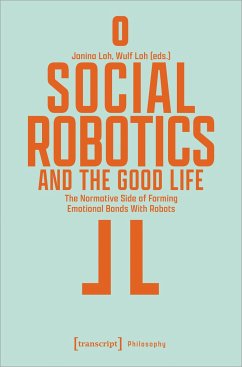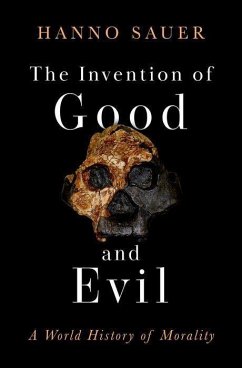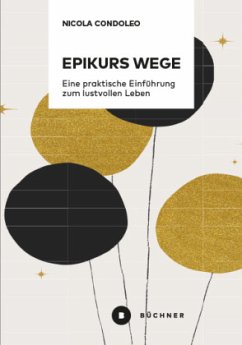
Pleasure and the Good Life
Concerning the Nature, Varieties, and Plausibility of Hedonism
Versandkostenfrei!
Versandfertig in 1-2 Wochen
70,99 €
inkl. MwSt.
Weitere Ausgaben:

PAYBACK Punkte
35 °P sammeln!
Since ancient times, hedonism has been one of the most attractive and controversial theories about 'the Good Life'. On this view, the Good Life is the pleasant life - pleasure is the Good. Now Fred Feldman presents a careful, modern formulation of hedonism, defending the theory against some of the most important objections. Distinguishing some diverse variants of the theory, and assessing their merits, Feldman explains why each deserves to be classified as a form
of hedonism. His book offers inspiring vindication for anyone who hopes that it is possible to enjoy oneself and be good at the same time.
of hedonism. His book offers inspiring vindication for anyone who hopes that it is possible to enjoy oneself and be good at the same time.
Fred Feldman's fascinating new book sets out to defend hedonism as a theory about the Good Life. He tries to show that, when carefully and charitably interpreted, certain forms of hedonism yield plausible evaluations of human lives.
Feldman begins by explaining what we mean when we ask what the Good Life is. He argues that this should not be taken to be a question about the morally good life or about the beneficial life. Rather, the question concerns the general features of the life that is good in itself for the one who lives it. Hedonism says (roughly) that the Good Life is the pleasant life. After showing that the usual formulations of hedonism are often confused or incoherent, Feldman presents a simple, clear, coherent
form of sensory hedonism that provides a starting point for discussion. He then considers a catalogue of classic objections to hedonism, coming from sources as diverse as Plato, Aristotle, Brentano, Ross, Moore, Rawls, Kagan, Nozick, Brandt, and others.
One of Feldman's central themes is that there is an important distinction between the forms of hedonism that emphasize sensory pleasure and those that emphasize attitudinal pleasure. Feldman formulates several kinds of hedonism based on the idea that attitudinal pleasure is the Good. He claims that attitudinal forms of hedonism - which have often been ignored in the literature - are worthy of more careful attention.
Another main theme of the book is the plasticity of hedonism. Hedonism comes in many forms. Attitudinal hedonism is especially receptive to variations and modifications. Feldman illustrates this plasticity by formulating several variants of attitudinal hedonism and showing how they evade some of the objections. He also shows how it is possible to develop forms of hedonism that are equivalent to the allegedly anti-hedonistic theory of G. E. Moore, and the Aristotelian theory according to which
the Good Life is the life of virtue, or flourishing. He also formulates hedonisms relevantly like the ones defended by Aristippus and Mill.
Feldman argues that a carefully developed form of attitudinal hedonism is not refuted by objections concerning 'the shape of a life'. He also defends the claim that all of the alleged forms of hedonism discussed in the book genuinely deserve to be called 'hedonism'. Finally, after dealing with the last of the objections, he gives a sketch of his hedonistic vision of the Good Life.
Feldman begins by explaining what we mean when we ask what the Good Life is. He argues that this should not be taken to be a question about the morally good life or about the beneficial life. Rather, the question concerns the general features of the life that is good in itself for the one who lives it. Hedonism says (roughly) that the Good Life is the pleasant life. After showing that the usual formulations of hedonism are often confused or incoherent, Feldman presents a simple, clear, coherent
form of sensory hedonism that provides a starting point for discussion. He then considers a catalogue of classic objections to hedonism, coming from sources as diverse as Plato, Aristotle, Brentano, Ross, Moore, Rawls, Kagan, Nozick, Brandt, and others.
One of Feldman's central themes is that there is an important distinction between the forms of hedonism that emphasize sensory pleasure and those that emphasize attitudinal pleasure. Feldman formulates several kinds of hedonism based on the idea that attitudinal pleasure is the Good. He claims that attitudinal forms of hedonism - which have often been ignored in the literature - are worthy of more careful attention.
Another main theme of the book is the plasticity of hedonism. Hedonism comes in many forms. Attitudinal hedonism is especially receptive to variations and modifications. Feldman illustrates this plasticity by formulating several variants of attitudinal hedonism and showing how they evade some of the objections. He also shows how it is possible to develop forms of hedonism that are equivalent to the allegedly anti-hedonistic theory of G. E. Moore, and the Aristotelian theory according to which
the Good Life is the life of virtue, or flourishing. He also formulates hedonisms relevantly like the ones defended by Aristippus and Mill.
Feldman argues that a carefully developed form of attitudinal hedonism is not refuted by objections concerning 'the shape of a life'. He also defends the claim that all of the alleged forms of hedonism discussed in the book genuinely deserve to be called 'hedonism'. Finally, after dealing with the last of the objections, he gives a sketch of his hedonistic vision of the Good Life.













